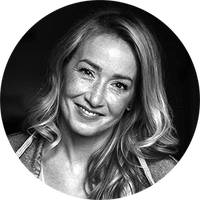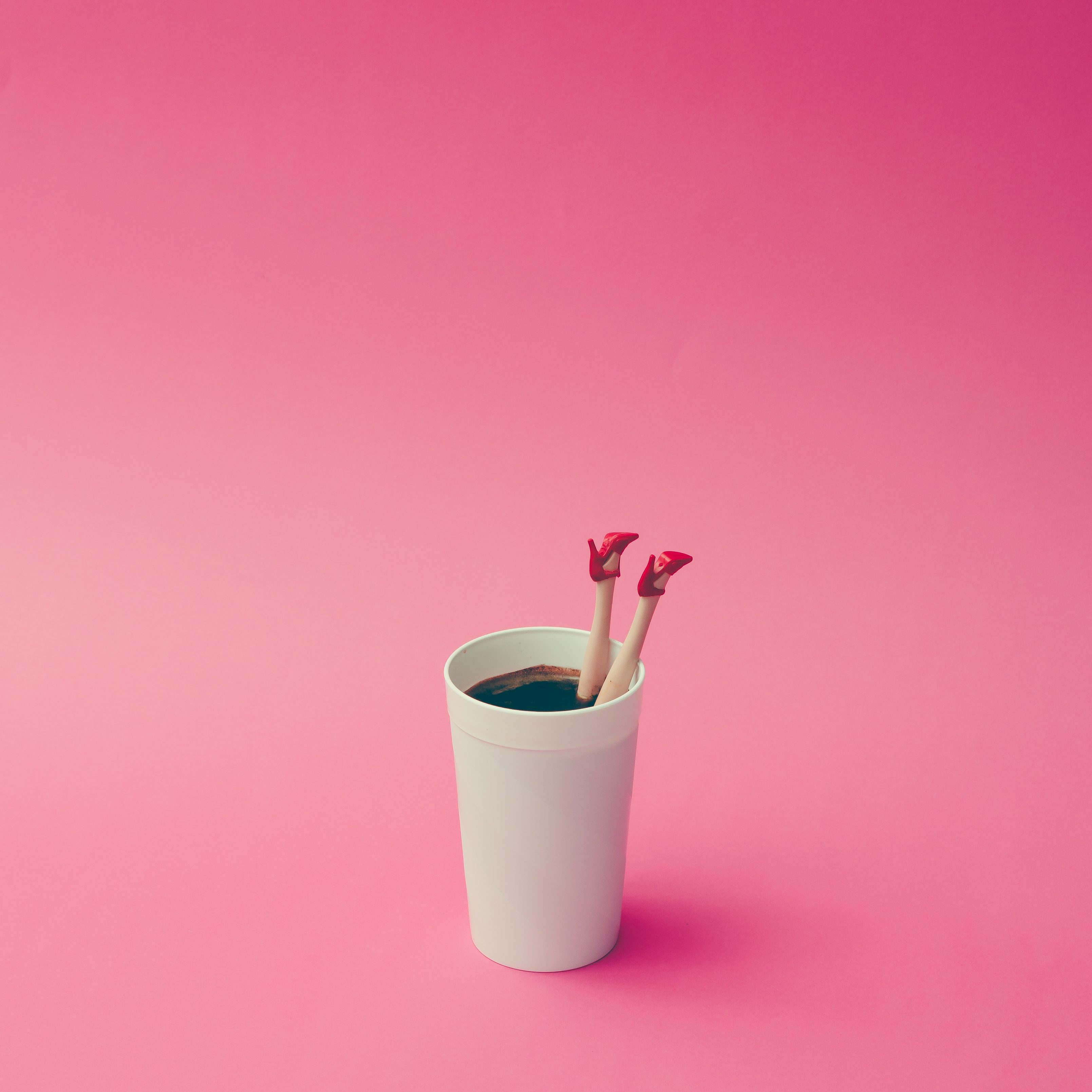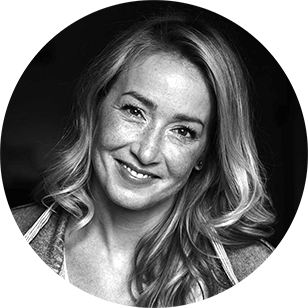Coffee is my cocaine
Inside my debilitating coffee addiction


A free daily email with the biggest news stories of the day – and the best features from TheWeek.com
You are now subscribed
Your newsletter sign-up was successful
I quit drinking alcohol and doing drugs 13 years ago. But even after that, I still found a way to get high every day.
My body would start to twitch at around 5 a.m. I'd remain in bed until 6, but then it was on. I would bound to the kitchen, grind the beans, set up the pour-over, and anxiously wait for the water to boil. Those days, I drank coffee like I used to snort coke. But then, like all good drugs, it stopped working. It no longer got me high. Instead, I became scared, anxious, scattered.
Caffeine used to launch me into a creative flow where ideas became abundant. I was brave. Superhuman. I leveraged this "caffeine courage" to annihilate my to-do list and household chores. I made decisions effortlessly. I hit the gym in beast mode. Digestion was on point and my appetite was faint. I didn't feel cold or tired. When I was jacked up on coffee, every morning was even more full of possibility. It was the best part of my day.
The Week
Escape your echo chamber. Get the facts behind the news, plus analysis from multiple perspectives.

Sign up for The Week's Free Newsletters
From our morning news briefing to a weekly Good News Newsletter, get the best of The Week delivered directly to your inbox.
From our morning news briefing to a weekly Good News Newsletter, get the best of The Week delivered directly to your inbox.
I loved the "up" feeling, but also got off on the come-down, when the caffeine was no longer pumping through my veins. I was catapulted to a state where I met my deepest pain, loneliness, and desires. Although it was a dark place, I accessed emotions that weren't available to me in my "get stuff done" world. Much like cocaine, I realized caffeine allowed me to disconnect from the human experience. After 13 years of drinking seltzer water and diet coke while others partook in happy hour cocktails, I needed to escape. Coffee created one.
Caffeine was always part my being. As a 40-year-old woman who hailed from Texas, mornings in our home began in the dark. My Air Force pilot father believed that "the early bird got the worm," and he drank coffee like it was water.
"Doctors should do a study on me," my dad said from his sage bedroom chair as he drifted off for a nap, fourth cup in hand.
For me, coffee was also a bridge to connection. After I gave up booze and drugs, I couldn't "meet for a drink" anymore, I could still "meet for a coffee."
A free daily email with the biggest news stories of the day – and the best features from TheWeek.com
So, I really had no desire to abandon my last guilty pleasure. And the truth was, I couldn't function without it. I tried decaf. I tried half-caff. But I eventually ended up grinding, mixing, and scooping various types of beans to get the blend just right. My kitchen resembled a meth lab. I tried to substitute alternate forms of caffeine like green tea and matcha but I would always eventually wind up in Starbucks, coddling a cold brew.
But then, my body started to feel the effects of my caffeine addiction. Razor-sharp shooting pains radiated inside my head. I spent hours dealing with stomach spasms. I tried deep breathing to calm down, and Gatorade to restore my electrolyte balance. I even called 911 once because I thought I was having a heart attack.
"What sort of drugs have you been doing, ma'am?" the medic asked me while I sat in the back of the ambulance.
"I just had two cups of coffee," I replied hysterically. He wouldn't take me to the hospital.
After that, you might have thought caffeine had gotten the best of me, that I was done. Alas, no. I clung to coffee. I simply loved the buzz too much to give it up.
But I did try to understand what was happening to me. I needed to find out how and why the love of my life had become an abusive boyfriend. After countless hours researching coffee addiction, usually in the throes of a bout of withdrawal, I discovered that coffee was indeed a drug, but experts didn't consider caffeine dependence a serious addiction. I learned that caffeine use can cause mild physical dependence that comes with its own withdrawal symptoms.
I also discovered that caffeine is a psychostimulant with the same effects to the nervous system as cocaine and amphetamines, which explained why the speed-lover in me liked it so much. There's was a moment between my fifth sip and 11th sip where I felt like I'd snorted a big fat rail. My mood elevated. I longed to drink more so the high wouldn't fade. From grocery shopping, to hanging the shelf that had been sitting in my hall for a year, I was certain I would get everything get done.
Caffeine increased my breathing and heart rate, triggering the "fight or flight" response. And it turned out that my hormones were intensifying my reactions. From day five to 14 of my menstrual cycle, rising estrogen triggered bigger reward sensations in the brain, making me want to get the rush again and again.
My discoveries were enlightening, but even with all this information in hand, I knew in my heart that coffee and I were together forever. I couldn't give it up. Instead, I created workarounds. To recreate a productive and safe coffee experience, I got strategic about my consumption. I mitigated the anxiety and stomach spasms by eating protein before my first cup. If a piece of chicken enabled safer caffeine use, then I was game. Eating more red meat seemed to help too. I built in time for meditation to balance out my frenetic energy.
So, while I haven't given up my vice, these days, I'm a functioning caffeine user. And that's okay. Progress not perfection, right?
Aubree Nichols hails from Texas, but finds comfort in the grit of NYC. Her writing for Elite Daily and Work it Health has made her a resonant voice in the self-love movement. Aubree leverages her MA in Organizational Change to transform creative cultures and organizations. If she's not drinking coffeee, dancing to Beyonce, or writing, she's posting to her Instagram. Her memoir, Me: A Love Story, will be released in 2018.



